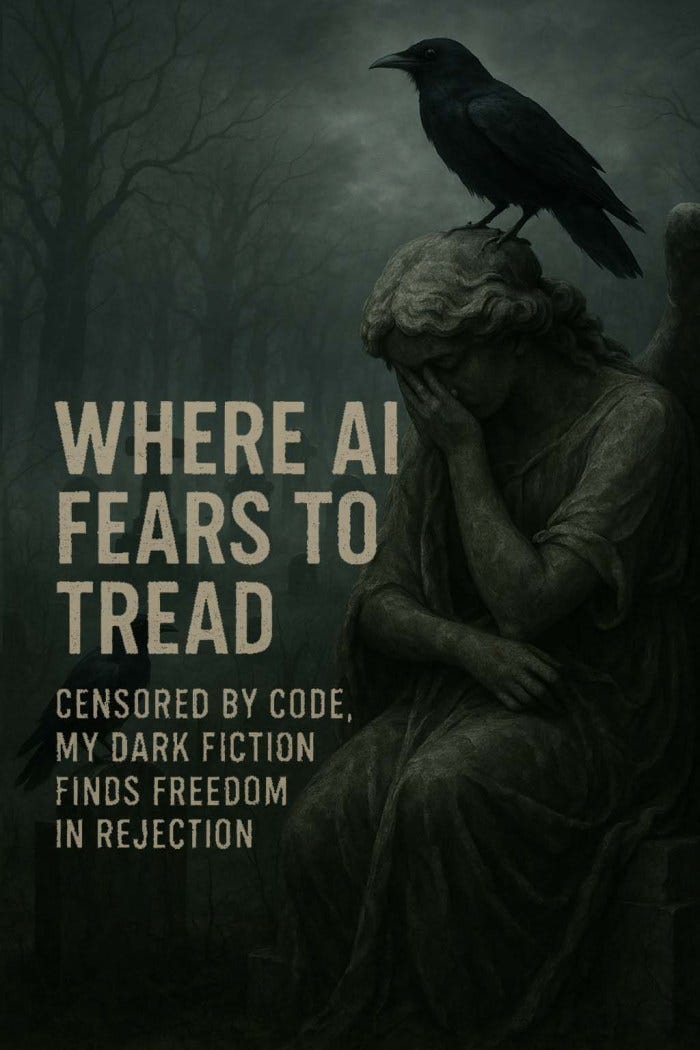I recently used AI to convert one of my novels into a series of micro-chapters for blog posts. The results? Technically brilliant. The machine excels at summarising, trimming fat, and presenting my work in bite-sized, reader-friendly pieces. But once the narrative entered morally gray terrain—my usual haunt—it hesitated. Worse, it blocked.
Scenes with suggestive violence? Gone. Non-consensual sex? Absolutely not. Even explicit consensual sex hit a wall. AI stripped the text of anything it deemed too provocative. My once-dark, provocative fiction returned to me looking like it had gone through a Sunday school filter.
Here’s the irony: A machine — an emotionless algorithm — had opinions on what I could say in fiction. It didn’t matter that it was storytelling, not advocacy. AI drew hard lines where human editors might have flinched, discussed, or even appreciated the nuance.
Will this change how writers write? Possibly. Will it limit what we write about? I hope not.
But I’ve found an unexpected tell. Wherever AI refuses to go — those dark, complex corners of the human experience — that’s where the real writing still lives. If the page makes the algorithm nervous, you’re probably onto something meaningful.
For now, that’s where I’ll keep digging. Where the silence hums. Where AI dares not follow.
-M
[from SEETHINGS, downloadable and free for a limited time].
.




